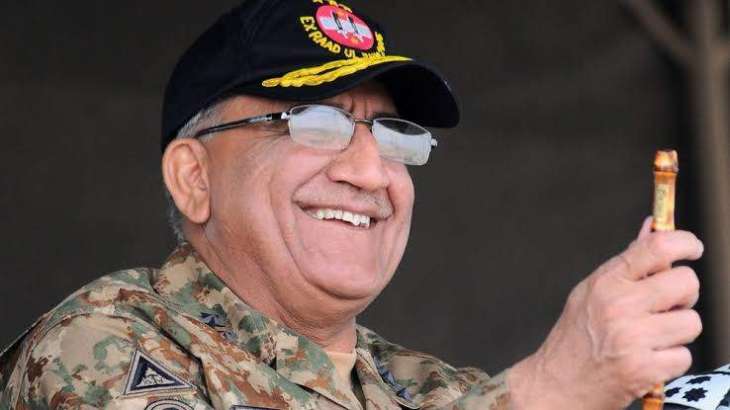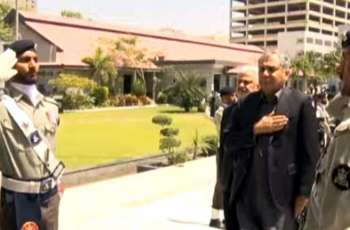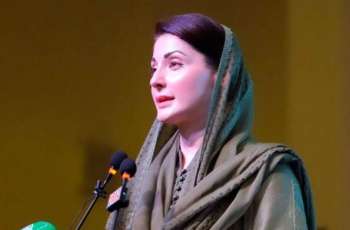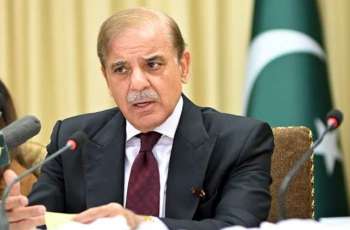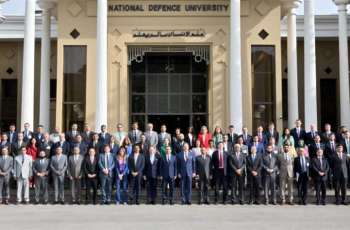The court seeks undertaking from the govt to do legislation on the matter within six month time and remove courts from summary of draft notification.
ISLAMABAD: (Urdu Point/Pakistan Point News-Nov 28th, 2019) The Supreme Court on Thursday announced its short verdict that General Qamar Javed Bajwa would remain Chief of Army Staff (COAS) for another six months, with directives to the government to do legislation on extension and re-appointment of army chief.
A three-member bench headed by Chief Justice of Pakistan Asif Saeed Khosa and comprising Justice Mazhar Alam Khan Miankhel and Justice Syed Mansoor Ali Shah announced the reserved verdict. However, the court sought undertaking from the government that the parliament would pass legislation in this regard within six-month time. The government in compliance of the court orders eliminated the mention of courts in draft notification issued for extension in tenure of sitting Army Chief. The mention of salary and incentives of army chief have also been eliminated.
General Qamar Javed Bajwa was due to retire at midnight on Nov 29.
“We are giving six-month time to the government to do legislation on the matter,” the bench observed. The bench also observed that the government kept changing its stance, sometimes seeking reappointment and sometimes mentioning extension since after the reappointment or extension of the sitting army chief was challenged. The court further observed that Gen Bajwa was appointed as Army Chief according to the new summary notification presented before it. The court also reviewed all laws that were associated and linked with Article 243 of the Constitution.
“Article 243 (b) has also been examined deeply,” the top judge remarked.
Earlier, the government presented summary of notification before the top court for the third time and sought extension in the tenure of sitting Army chief Gen Bajwa. The bench after hearing arguments of the government, reserved its judgment after the government assured it that legislation would be made within the given time.
The court, however, was asked not to mention time-limit in the order.
The CJP snubbed the top law officer for mentioning court in draft notification issued for extension in tenure of Army Chief General Qamar javed Bajwa. During the hearing, Attorney General Mansoor Anwar Khan submitted the summary of draft notification for General Bajwa’s extension prepared by the government. The CJP surprised to read the name of the court in summary of draft notification.
“Why you are dragging us in the middle? Do it, because it is your work?,” the CJP snubbed the AGP. He also remarked: “Bear your own burden rather than dragging the courts into it,”. “It will become a precedent if we allow three-year extension,” CJP remarked and said that they did not want the courts to be dragged in the middle.
The CJP directed the AGP to eliminate the mention of the courts from the draft notification, observing that we could not even point out what is wrong if the court name is used here. He also noted that the post of Army chief was already occupied by General Bajwa. “When a post is already occupied then how an appointment can be made,” the CJP asked the AGP. He also directed the attorney general to remove the words “court’s advice” and observed that “it is different matter if the president seeks our advice,”.
The government failed to satisfy the top court regarding the matter of extension in tenure of Army chief General Qamar Bajwa. Soon after the court hearing, Prime Minister Imran Khan called an emergency meeting of the cabinet to discuss the government’s strategy for Supreme Court’s proceedings on Thursday (today). Chief of Army Staff (COAS) General Qamar Javed Bajwa himself also attended the cabinet meeting along with Prime Minister Imran Khan.
